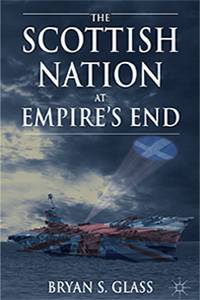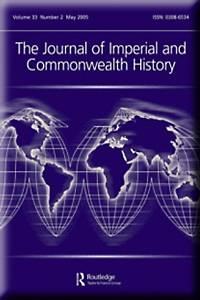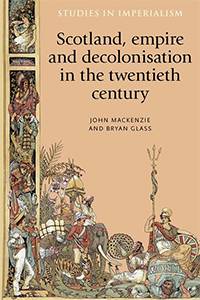Bryan Glass

Professor of Instruction
Office: TMH-03
Email: bg30@txstate.edu
Phone: 512.245.2772
Educational Background
Ph.D. - University of Texas at Austin
M.Phil. - University of Cambridge
B.A. - Lake Forest College
As a teacher-scholar, my goal is to get students to think critically and analytically while introducing them to British, United States, Western, World, and European history. Additionally, I published a monograph, articles, and an anthology on Scotland and the British Empire. My current interest is on the intellectual origins of decolonization.
As the Founder of The British Scholar Society my goal was to increase awareness of the concept of Britain and the World. Britain's global interactions are at the heart of the modern world. Understanding Britain's historical interactions with the rest of the world allows us to unravel the past while preparing confidently for the future.
I am the author of "The Scottish Nation at Empire's End" (Palgrave Macmillan, June 2014, re-issued as an expanded edition in paperback, January 2016), which investigates Scottish engagement with the British Empire following the end of the Second World War. Additionally, I edited an anthology with Professor John M. Mackenzie entitled "Scotland, Empire and Decolonisation in the Twentieth Century" (Manchester University Press, 2015).
Publications
The Scottish Nation at Empire’s End (Palgrave Macmillan, Publication Date: June 2014)
 The rise and fall of the British Empire profoundly shaped the history of modern Scotland and the identity of its people. From the Act of Union in 1707 to the dramatic fall of the British Empire following the Second World War, Scotland’s involvement in commerce, missionary activity, cultural dissemination, emigration, and political action could not be dissociated from British overseas endeavors. In fact, Scottish national pride and identity were closely associated with the benefits bestowed on this small nation through its access to the British Empire. By examining the opinions of Scots towards the empire from numerous professional and personal backgrounds, Scotland emerges as a nation inextricably linked to the British Empire. Whether Scots categorized themselves as proponents, opponents, or victims of empire, one conclusion is clear: they maintained an abiding interest in the empire even as it rapidly disintegrated during the twenty-year period following the Second World War. In turn, the end of the British Empire coincided with the rise of Scottish nationalism and calls for Scotland to extricate itself from the Union. Decolonization had a major impact on Scottish political consciousness in the years that followed 1965, and the implications for the sustainability of the British state are still unfolding today.
The rise and fall of the British Empire profoundly shaped the history of modern Scotland and the identity of its people. From the Act of Union in 1707 to the dramatic fall of the British Empire following the Second World War, Scotland’s involvement in commerce, missionary activity, cultural dissemination, emigration, and political action could not be dissociated from British overseas endeavors. In fact, Scottish national pride and identity were closely associated with the benefits bestowed on this small nation through its access to the British Empire. By examining the opinions of Scots towards the empire from numerous professional and personal backgrounds, Scotland emerges as a nation inextricably linked to the British Empire. Whether Scots categorized themselves as proponents, opponents, or victims of empire, one conclusion is clear: they maintained an abiding interest in the empire even as it rapidly disintegrated during the twenty-year period following the Second World War. In turn, the end of the British Empire coincided with the rise of Scottish nationalism and calls for Scotland to extricate itself from the Union. Decolonization had a major impact on Scottish political consciousness in the years that followed 1965, and the implications for the sustainability of the British state are still unfolding today.
 Article
Article
“Protection from the British Empire?: Central Africa and the Church of Scotland,” Journal of Imperial and Commonwealth History, vol. 41, no. 3 (2013): 475-495
 Edited Collection
Edited Collection
Scotland, Empire and Decolonisation in the Twentieth Century, edited with John M. MacKenzie (Manchester University Press, 2015)
Affiliations




Courses Taught
HIST 1310 | US History to 1877
A general survey of the history of the United States from its settlement to the end of Reconstruction.
HIST 2310 | Western Civilization to 1715
A general survey of western civilization from earliest times to the end of the 17th century.
HIST 2320 | Western Civilization, 1715 to Date
A general survey of world civilization from the 17th Century to the present.
HIST 4318S | Britain and the World:
From the seventeenth century onward, the histories of Britain and the world became increasingly intertwined. Yet mainstream British history still neglects the world’s influence upon domestic developments, and British overseas history remains largely confined to the study of the British Empire. This course takes a broader approach, investigating Britain’s interactions with the wider world from 1688 to the present.
HIST 4350S | Piracy through the Ages
An activity based on greed, and sometimes survival, piracy has existed since humans took to the seas. This course investigates the global history of piracy beginning with the Vikings. The history of piracy in the Caribbean, Asia, and the Mediterranean is covered and compared to the piracy of today.
HIST 4350Q | Pirates of the Mediterranean
This special-topics course explores the history and culture of smugglers in the eighteenth-century Mediterranean, and the challenges they posed for states' interests in the region. Emphasis is placed on eighteenth-century US diplomatic relations with the Barbary states.
